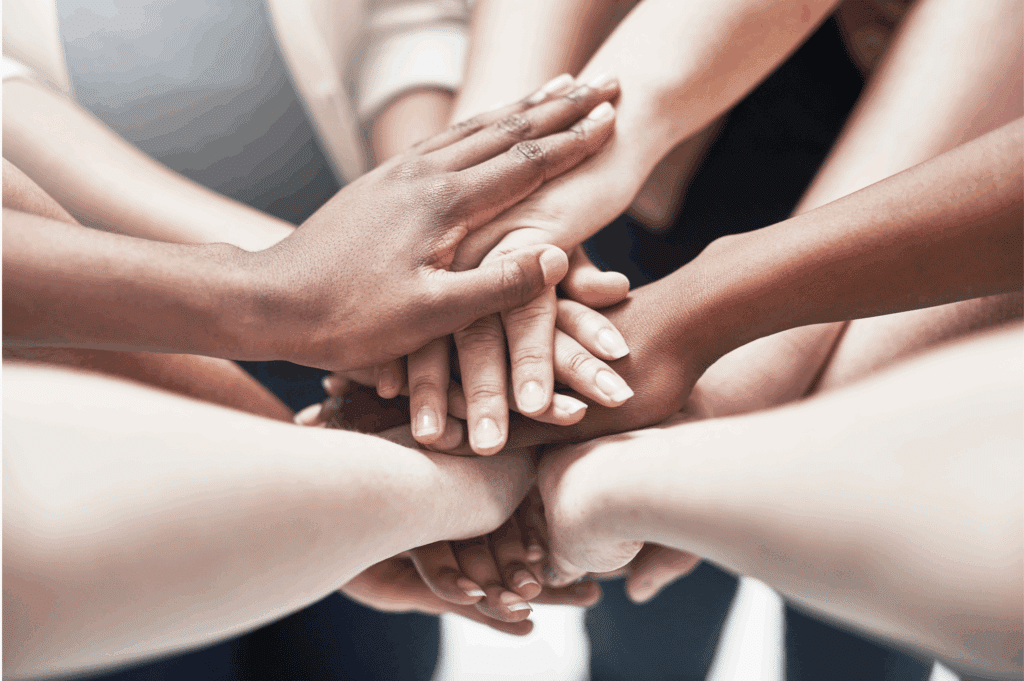
Learn how to create a support network for lasting addiction recovery.
Successful recovery isn’t something you have to do alone. While your personal commitment is essential, the people around you also play a vital role. Whether it’s a counselor, a family member, or someone you met in treatment, your recovery support network can help you navigate the challenges of addiction and sustain long-term healing.
Keep reading to learn how to build a strong support network, form meaningful connections, and access the right resources to support your recovery journey—whether you’re just beginning treatment or have been on your path for years.
Why a Recovery Support Network Matters
A strong network in recovery includes people who believe in your ability to heal and grow. From emotional encouragement to accountability and relapse prevention, these relationships create the foundation for long-term success.
Here’s how a recovery support network can help you:
- Serve as positive examples: Being around others in recovery helps you visualize and pursue a healthier lifestyle.
- Provide a safe outlet: You’ll need a place to share the highs and lows of recovery without fear of judgment.
- Act as a lifeline during triggers: When temptation or stress arises, having someone to call can help you stay grounded and focused.
Peer support in recovery is especially powerful. Research shows that individuals who engage in support groups and recovery communities are more likely to maintain long-term sobriety.
Tips for Creating a Recovery Support Network
Being around productive people with healthy habits reduces the likelihood of turning to substances as a coping mechanism for triggers. Here are some tips to keep in mind when creating your recovery support team:
1. Join Recovery Groups and Counseling Programs
You are never alone in your recovery. Group counseling and peer support meetings provide a chance to meet others who share similar challenges and goals. These relationships can become lasting sources of encouragement and perspective.
2. Work with Treatment Professionals
Therapists, counselors, and recovery coaches are essential members of your support network. At AppleGate Recovery, our medication-assisted treatment (MAT) program combines medical care with behavioral health support to guide your full recovery—mentally and physically.
3. Reconnect with Family or Trusted Loved Ones
Substance use can strain family relationships, but recovery creates an opportunity to rebuild them. Healing conversations and restored trust can bring loved ones into your network and serve as a long-term support system.
4. Choose Your Friends Wisely
Not every relationship will support your recovery—and that’s okay. Focus on people who uplift and encourage you. Avoid those who use substances or negatively impact your progress. Check in regularly with yourself and your relationships.
5. Invest in Your Own Growth
Your mindset matters. As you build confidence and nurture your own well-being, you’ll attract people who align with your goals. Self-awareness and personal development naturally expand your support network.
Who Should Be in Your Recovery Support Network?

Friendship and connections are crucial in helping you fend off loneliness that may lead to a relapse. However, not everyone you encounter belongs in your recovery support system.
A strong recovery support network may include:
- Supportive friends
- Family members committed to your healing
- Peers in recovery or mentors
- Therapists or recovery coaches
- Healthcare professionals
- Support group participants
These individuals contribute emotional, social, and practical help throughout your recovery journey.
Quick Checklist: 5 Questions to Ask When Building Your Network
Use these questions to guide your decision-making as you form your recovery support network:
- Is this person supportive of my recovery goals?
- Do they avoid substances and encourage healthy habits?
- Can I trust them to listen without judgment?
- Are they available when I need support or guidance?
- Do I feel safe and respected in this relationship?
Being intentional about who you allow into your recovery circle can make a significant difference in your long-term success.
Frequently Asked Questions
What’s the difference between a recovery support group and a recovery support network?
A recovery support group is a specific gathering of people in recovery, like a 12-step meeting or therapy group. A recovery support network is broader—it includes not just peers, but also family, professionals, and others who contribute to your recovery.
Can I build a recovery support network online?
Yes. Many people find meaningful support through virtual meetings, online forums, telehealth counseling, and recovery-focused social communities. These resources can be especially helpful if in-person options are limited.
You Don’t Have to Do This Alone
Recovery is a lifelong process, and your support network will evolve over time. Be open to new connections, reflect on the support you need, and know that there are people—some you haven’t even met yet—who can walk alongside you. With the right recovery support network, you can face every challenge and milestone with strength.
Get Help for Opioid Use Disorder at AppleGate Recovery
At AppleGate Recovery, we proudly provide personalized treatment plans for individuals facing opioid addiction. Our programs focus on medication-assisted treatment complemented by counseling services, helping you achieve healing for both your body and mind. By beginning this journey, you are on your way to finding your own support network.

Contact AppleGate Recovery Today
If opioid addiction is impacting your life or the life of someone you care about, reach out to our treatment center. We are here to provide the support and care you need to take the first step toward recovery.
Call 888.488.5337
